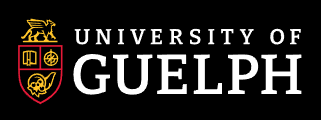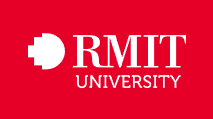Applying Variational Translation Theory: An E-C Translation Study of Chapters 8-11 from Lesson Plans to Train Like You Fly
DOI:
https://doi.org/10.63313/IJSSEH.9019Keywords:
Variational Translation Theory, Scenario-Based Training, Aviation Textbook, English-Chinese Translation, Technical TranslationAbstract
This report focuses on the English-to-Chinese translation of Chapters 8–11 of Lesson Plans to Train Like You Fly: A Flight Instructor's Reference for Scenar-io-Based Training. It explores how Variational Translation Theory, proposed by Huang Zhonglian, can enhance the quality and applicability of professional training materials. Given the growing demand for competent flight instructors in China, and the widespread use of English-language scenario-based training materials, effective translation is essential.
References
[1] Castro, G.C. (2006) Contemporary Translation Theories. Estudios humanísticos. Filología, (28), 330-332.
[2] Munday, J. (2016) Introducing Translation Studies. Taylor and Francis.
[3] Nord, C. (2014) Translating as a Purposeful Activity. Taylor and Francis.
[4] Chen, A.S. (2004) An Experimental Report on the Situational Teaching Method in Aviation Radio English Communication Teaching. Journal of Civil Aviation Flight University of Chi-na, (04), 7-8.
[5] Fang, M.Z. and Wang, Z.J. (2020) Theoretical Contributions and Practical Significance of Variation Translation Theory. Foreign Language Education, 41(01), 82-86.
[6] Huang, S.H. (2005) Functional Translation Theory and Variation Translation Stud-ies. Journal of Nanjing Forestry University (Humanities and Social Sciences Edition), (04), 57-59.
[7] Huang, Z.L. (2002) Seven Adaptation Methods in Variation Translation. Foreign Language Research, (01), 93-96.
[8] Huang, Z.L. (2002) Variation Translation Theory: A New Translation Theory. Foreign Lan-guage Teaching Abroad, (01), 19-22.
[9] Huang, Z.L. (2010) On "Variation" and "Transformation" in Translation. Foreign Language Research, (06), 104-108.
[10] Huang, Z.L. (2013) On the Relationship Between "Faithfulness, Expressiveness, and Ele-gance" and "Adaptation Techniques". Foreign Language Research, (06), 80-84.
[11] Huang, Z.L. (2002) The Evolution of the Concept of Variation Translation. Foreign Lan-guages and Their Teaching, (08), 46-48.
[12] Liu, L.F. and Huang, Z.L. (2001) Basic Principles of Compilation: A Study on Variation Translation Methods. Chinese Science & Technology Translators Journal, (01), 42-43+29.
[13] Li, Y.S. and Huang, Z.L. (2005) Groundbreaking Theoretical Construction: A Review of Hu Gengshen's "Translation as Adaptation and Selection". Foreign Language Education, (06), 95-96.
[14] Song, F. (2012) Applied Research on Variation Translation Theory. Foreign Language Re-search, (02), 126-129.
[15] Wen, J. and Li, P.J. (2011) A Study on the Translation of Aerospace English Terminolo-gy. Journal of Guangdong University of Foreign Studies, 22(03), 27-31+42.
[16] Wu, X.M. and Jin, J.H. (1997) Handling Long and Complex Sentences in Scientific English Translation. Chinese Science & Technology Translators Journal, (04), 26-29.
[17] Wang, H. (2011) The Application of Variation Translation Theory in Scientific English Translation. Chinese Science & Technology Translators Journal, 24(02), 60-62.
[18] Zhu, X.H. (2018) Research on the Application of Situational Teaching Method in the Course "Airline Operations Management". Education Modernization, 5(48), 175-176.
Downloads
Published
Issue
Section
License
Copyright (c) 2025 by author(s) and Erytis Publishing Limited.

This work is licensed under a Creative Commons Attribution 4.0 International License.





















